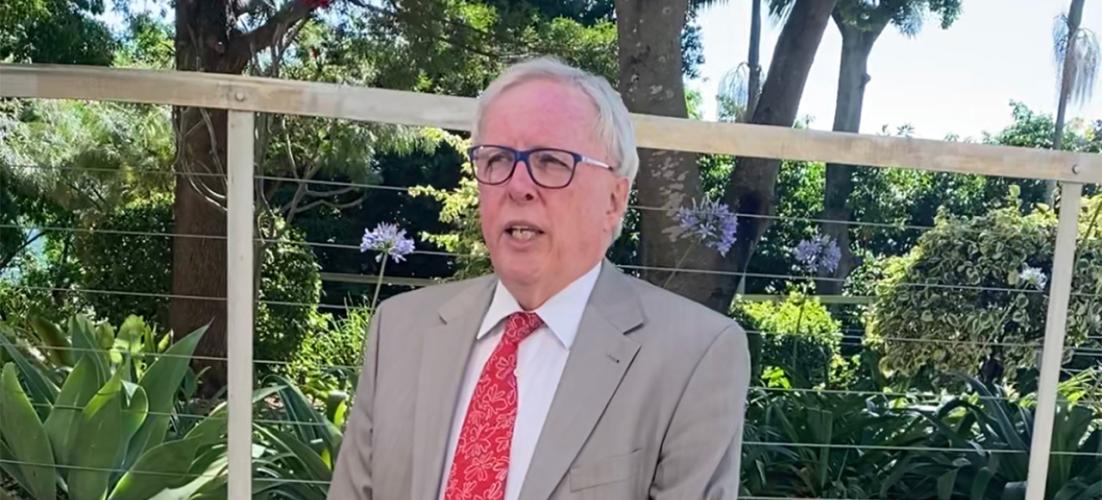Fine line between pleasure and pain in Queensland Budget

Prof Chris Perry addressing media
MEDIA RELEASE
The State Government had missed an opportunity to treat some serious and long-term pain points in the state’s health sector, according to the Australian Medical Association (AMA) Queensland.
AMA Queensland President Professor Chris Perry said $21.8 billion health funding announced in the 2020-21 Budget was important recognition of the sector during a global pandemic but would not address several long-standing problems such as underfunding of palliative care and chronic pain services, and underinvestment in hospital technology.
“It is good news for Queenslanders to have access to new, expanded and upgraded hospitals with the promise of 1500 more doctors to be employed but we would like to see more detail about the services to be offered at seven new satellite hospitals and expanded outpatient services,” Prof. Perry said.
“This funding must target areas of real need and focus on improving access to health care for Queensland’s most vulnerable communities.”
Prof. Perry said it was incredibly disappointing to see, yet again, that First Nations healthcare and palliative care was being neglected.
“Spending $171 million on palliative care over the next five years barely scratches the surface,” he said.
“Given that Voluntary Assisted Dying laws are on the cards for Queensland next year, we must be absolutely certain that every terminally ill patient has the option of accessing palliative care in their final weeks and days.
“AMA Queensland also proposed a raft of clever, cost-effective ways to improve First Nations peoples’ access to dialysis, ENT, ophthalmology, women’s health, dental and palliative care but those initiatives have gone begging.”
AMA Queensland called for a focus on sustainability to future proof Queensland Health.
“The health sector is a huge carbon polluter, so it’s a no-brainer for public hospitals to be fitted with renewable energy schemes as part of the Government’s $500 million renewable energy fund,” Prof. Perry said.
“Hospitals also urgently need a large injection of capital to fix the plethora of inefficient, incompatible software that has been rolled out. Systems such as electronic medical records and electronic prescribing all have fatal flaws, which need at least $300 million to fix.
“These digital systems would be amazingly useful and efficient, if they were usable!”
AMA Queensland welcomed several commitments to mental health, including $70 million for a Cairns Hospital mental health unit, new mental health facilities at Ipswich Hospital and a 40-bed mental health unit at Gold Coast University Hospital.
“It is particularly good to see almost $62 million going into the Shifting Minds range of suicide prevention initiatives,” Prof. Perry said.
Prof. Perry said $100 million funding for GPs and wellbeing professionals in schools was a wise initiative.
“Prevention and intervention are critical to the health system,” he said.
“But we need to be sure the school-based wellbeing workers focus on priority issues such as obesity, sun safety, immunisation and cyber bullying.” Prof. Perry said doctors would expect the Government’s new, centralised Office of Rural and Remote Health to be integrated into local communities, where it needed to be most effective.
“Importantly for patients in rural areas, this new Office must be led by a doctor, as a deputy Director-General for Rural Health,” he said.